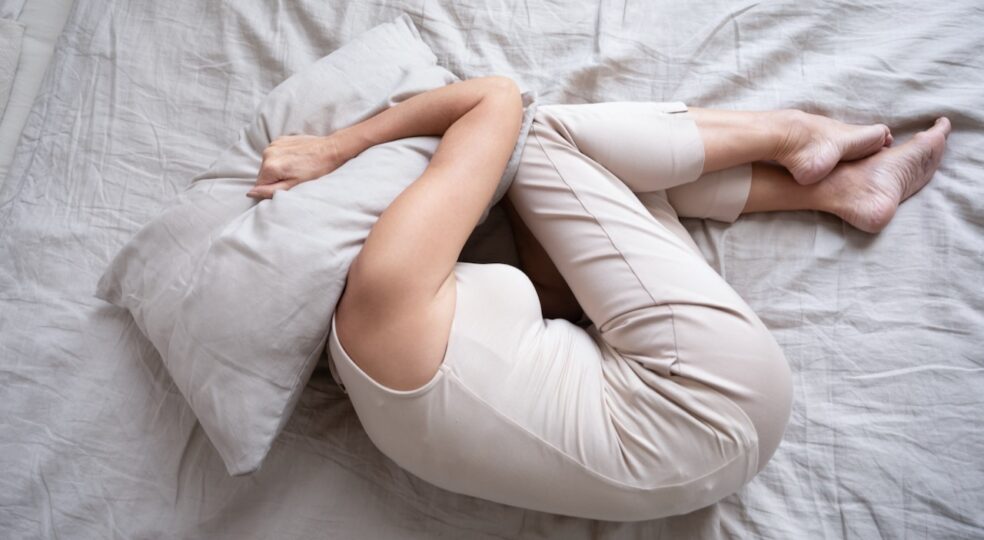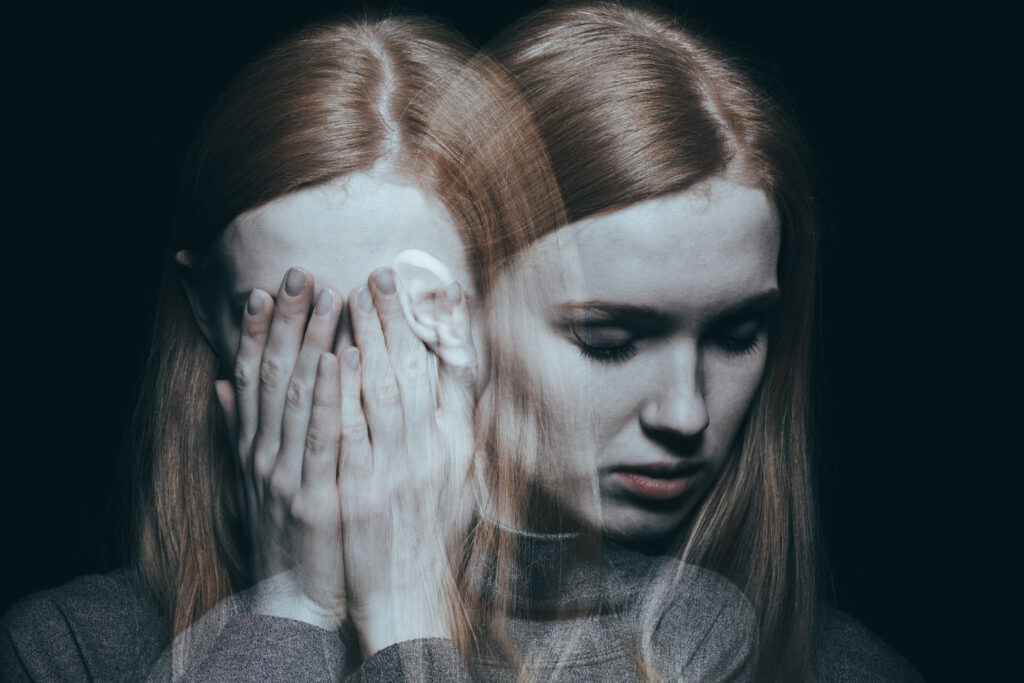
Fear is actually a useful emotion that has an important protective function. When danger threatens, fear puts the body on alert so that one can react immediately. An anxiety disorder is based on irrational fears. Excessive worries about the future, the workplace or the family trigger the anxiety feelings. In modern society, anxiety includes Fears almost normality. We constantly worry and fear all kinds of situations.
Permanent anxiety has a negative impact on the quality of life. Everyday life is perceived as stressful and can hardly be coped with. If the anxiety disorder remains untreated, a chronification of the Anxiety to be reckoned with. The "fear of fear" leads to the fact that one isolates oneself at home and neglects social contacts.
Anxiety disorder can be accompanied by other mental illnesses. There are some correlations between anxiety disorder and depression. With professional support, Coachingmeditation and our tips you can control your fears and overcome anxiety!

What is an anxiety disorder? The anxiety disorder definition describes constant fear as a typical symptom of this disorder. Normally, anxiety is a natural feeling that warns us of threats and dangers.
Every person has anxiety from time to time. Before an important exam, we feel anxiety because we fear failure. Fear causes the body to go on alert. This enables us to assess the dangerousness of a situation and develop a suitable strategy for action.
Depending on the threat, the response to fear can be either attack, wait, or flee. Once the threat situation is over, the fear disappears on its own. With an anxiety disorder, it is different.
An anxiety disorder is characterized by strong fear that occurs even in harmless situations. Thereby, the fear is not proportionate to the real threat.
Anxiety disorders are typically characterized by very intense, psychologically and physically palpable feelings of anxiety. Whether anxiety is a temporary feeling or considered a disorder depends on several factors. It is an anxiety disorder when the anxiety:
Anxiety disorders are among the most common mental health disorders. A distinction is made between different forms of anxiety. These include:
Anxiety also plays a central role in obsessive-compulsive disorder, hypochondriasis, and post-traumatic stress disorder (PTSD).
An anxiety disorder manifests itself through a wide variety of symptoms. These signs can manifest themselves physically or mentally. Often, anxiety disorder symptoms are so atypical that the anxiety is not recognized as the cause. Anxiety accompanying symptoms such as:
can also occur more frequently due to organically caused diseases. A medical clarification is therefore useful to enable a targeted anxiety disorder treatment.
Exaggerated, irrational fears relate to all sorts of things. The feelings of anxiety cannot be associated with concrete occasions. This is why we speak of a generalized anxiety disorder.
Somewhat more specific are the feelings of fear in social anxiety disorder. In this case, the fear is limited to certain performance-related or social situations. These are then consistently avoided.
Do you experience fear as helplessness, powerlessness and being at the mercy of others? Are you afraid of losing control? Strong feelings of anxiety can even lead to immediate fear of death. As a rule, an anxiety disorder is very treatable.
An untreated anxiety disorder significantly changes everyday life. Anxiety-inducing situations are avoided. The use of tranquilizers is intended to bring about a suppression of the anxiety.
Medications are rather unsuitable for anxiety disorder treatment. Drugs only fight symptoms and not the causes. Learning to deal with anxiety disorder is the better solution. Ignoring the anxiety disorder, on the other hand, can have serious consequences and lead to:
lead. An anxiety disorder is diagnosed by a doctor based on certain criteria. With psychotherapy, Coaching, relaxation techniques or a combination of several strategies can usually help.
Do you often suffer from anxiety whose cause you can't explain? There are various suggestions and concepts to overcome the anxiety disorder. Is self-help possible for an anxiety disorder? Yes! These 5 tips we have compiled for you should help you to cope with the anxiety disorder on your own.
Do not suppress your feelings of fear. Feel inside yourself. What is your soul trying to tell you through fear? Hold on to your fear. It usually disappears by itself within a few minutes.
Coaching is a proven method for learning to better manage anxiety. Hypnosis Coaching enables access to the subconscious. Deeply anchored fears, blockages or problems can be solved.
Meditation relaxes body and soul. Stress, a major anxiety trigger, is relieved during meditation exercises. Meditation involves the thoughts. Fears are reduced in small steps.
Sport is suitable for relieving excessive physical and mental tension. An anxiety-relieving effect can be achieved with just a few hours of endurance sport per week.
Confronting fear means consciously putting yourself in a situation that triggers fear. Are you afraid of an exam? Then take a tour of the school or university and look at the exam rooms.
Imagine the table at which you will sit and solve your tasks. This provides security and helps minimize excessive anxiety.
How do anxiety disorders develop? Anxiety can basically occur at any stage of life. The main anxiety disorder causes are:
An anxiety disorder often occurs with prolonged extreme workload or severe family stress. Better time management can reduce risk factors and reduce anxiety.
A life crisis is often associated with anxiety. The Fear of the future subsides when plans are made and ideas for the future way of life are developed. Anxiety disorder can also be a consequence of depression, panic disorder or addiction. Very often, however, anxiety occurs for no apparent reason.
Do you feel anxious? Take care of yourself more! Self-care is not selfishness, it means taking care of your own health. Self-care includes healthy eating, getting enough sleep, exercise and rest.
When you have an anxiety disorder, it's important not to overexert yourself. Make regular breaks your regular ritual.
Stress is an anxiety trigger. With 4-7-8 breathing, you quickly calm down during an anxiety attack. As soon as the anxiety rises in you, breathe slowly and deeply through your nose. Count to four. Hold your breath and count to seven. Then exhale through your mouth while counting to eight. Repeat this exercise until you feel calmer.
Talk to yourself. Tell yourself that fear is normal and that all people have fears. Focus on the feelings of fear. Feel how the fear gets weaker and weaker and eventually stops altogether. Learn to deal with the fear and not let your fears overwhelm you.
Reduce your caffeine intake. The caffeine in coffee, black tea, cola drinks and energy drinks increases blood pressure and heart rate. If you suffer from anxiety, you'll be more aware of your heartbeat. Coffee and other caffeinated drinks can increase anxiety. Therefore, it is better to avoid them.
An anxiety disorder is a psychological reaction that often occurs as a result of stress, mental overload and in difficult life situations. The special thing about an anxiety disorder is that anxiety reactions occur in harmless situations.
Anxiety disorder can be managed with targeted interventions, coaching, meditation, behavioral therapy, or direct confrontation with the anxiety.

